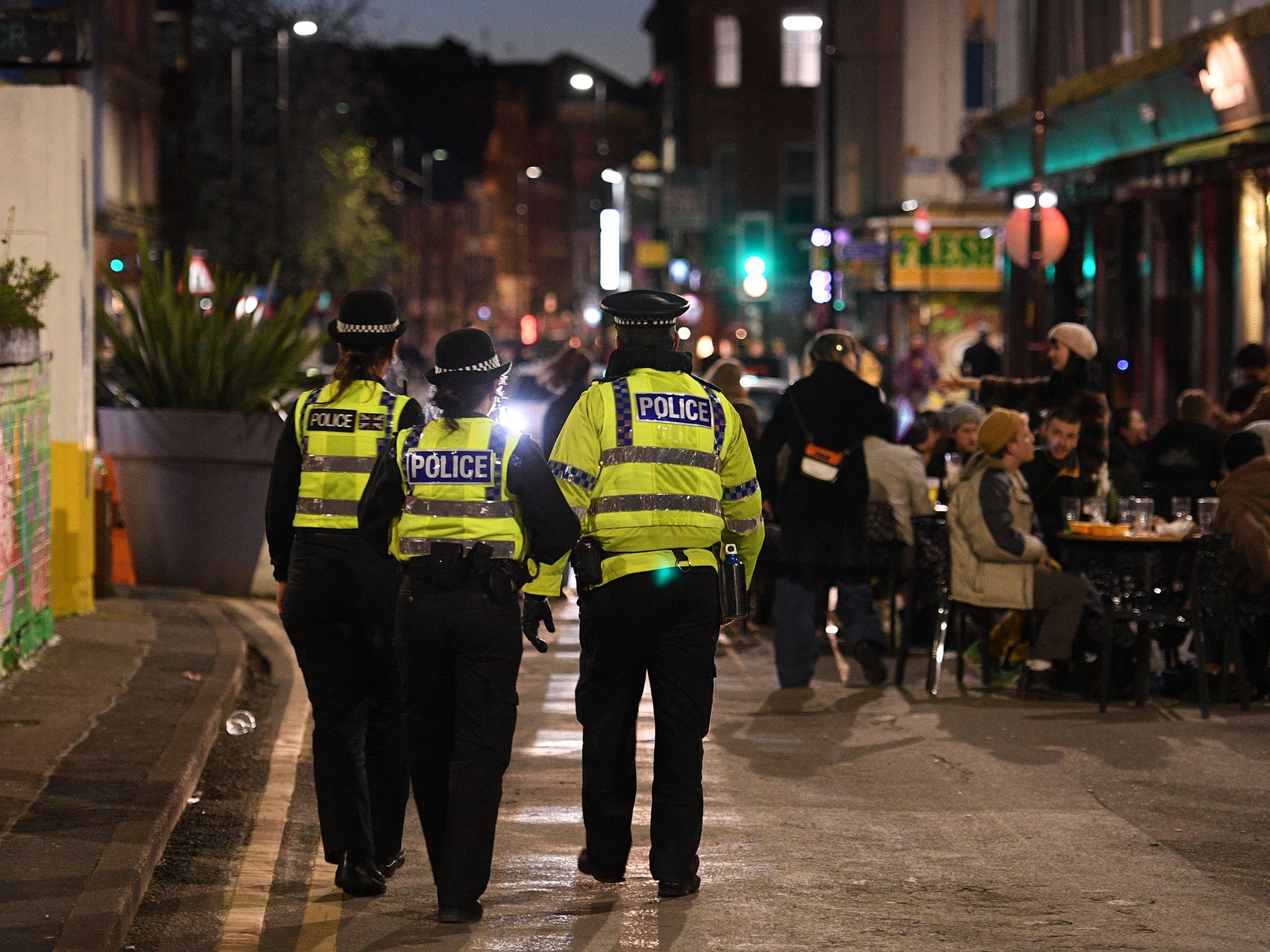Police mount extra patrols amid concerns over rise in violence as Covid restrictions ease
‘Some people will over indulge,’ says Dame Cressida Dick as pubs and restaurants open inside

Police are to increase patrols due to concerns over a rise in alcohol-fuelled violent crime as pubs and bars welcome customers back inside.
The easing of coronavirus restrictions on Monday will allow indoor hospitality venues to reopen, and the size of permitted gatherings to rise to 30 outside.
Regional police forces have mounted plans for local nightlife hotspots where they expect a rise in fights, assault and theft.
Senior officers say patrols will also enforce the new restrictions amid concerns over the spread of the Indian variant of Covid-19.
Dame Cressida Dick, Britain’s most senior police officer, said it was possible that “some people will over indulge” when meeting friends and loved ones.
The Metropolitan Police Commissioner told LBC radio that “alcohol-related violence” would be an issue for London and other cities.
“We will be out there in the areas where we think there could be trouble, working with local authorities and others, and trying to keep everyone safe from the pandemic as well as other possibilities,” Dame Cressida added.
“It’s clear with all the talk of the new variants we all need to be very careful and sensible. Our particular focus will be ensuring that as there is more footfall on the streets, and perhaps more people returning to work; that we are stopping crimes happening.”
The latest figures released by the Office for National Statistics (ONS) showed that crime patterns through 2020 closely followed the tightening and loosening of coronavirus restrictions.
The number of offences recorded by police dropped significantly overall compared to 2019, mainly driven by unprecedented falls during the first national lockdown.
Figures show that crime shot back up to near-normal levels when restrictions were at their loosest in the late summer and early autumn, then fell again as new measures were introduced.
Martin Hewitt, chair of the National Police Chiefs’ Council, urged the public to “remain mindful that we’re still in a national pandemic”.
“While I understand that people are excited to enjoy new activities, as well as seeing more of their friends and family, it really is vital people continue to keep the threat of Covid-19 at the forefront of their minds and stick to following the rules,” he said.
“The police will continue to play our part in helping the UK beat the virus and will take any necessary action against those who blatantly disregard the remaining restrictions. Anyone attending or organising large illegal parties or unlicensed music events can expect to be fined.
“Our officers will continue to carry out patrols and will engage with the public to explain the restrictions which remain in place at the time.”
The government has so far followed its “roadmap” out of lockdown, but on Friday the prime minister warned that the 21 June date scheduled for the end of restrictions was not set.
Boris Johnson told a Downing Street press conference that the Indian variant “could pose a serious disruption to our progress and could make it more difficult to move to step four in June”.
Mr Johnson said that if the variant turned out to be much more transmissible than other variants, the country could face “hard choices”.
Officials are accelerating the second vaccine doses given to the over-50s and clinically vulnerable people in an effort to increase immunisation, while surge testing is being used in the hotspots of Blackburn and Bolton.



Join our commenting forum
Join thought-provoking conversations, follow other Independent readers and see their replies
Comments